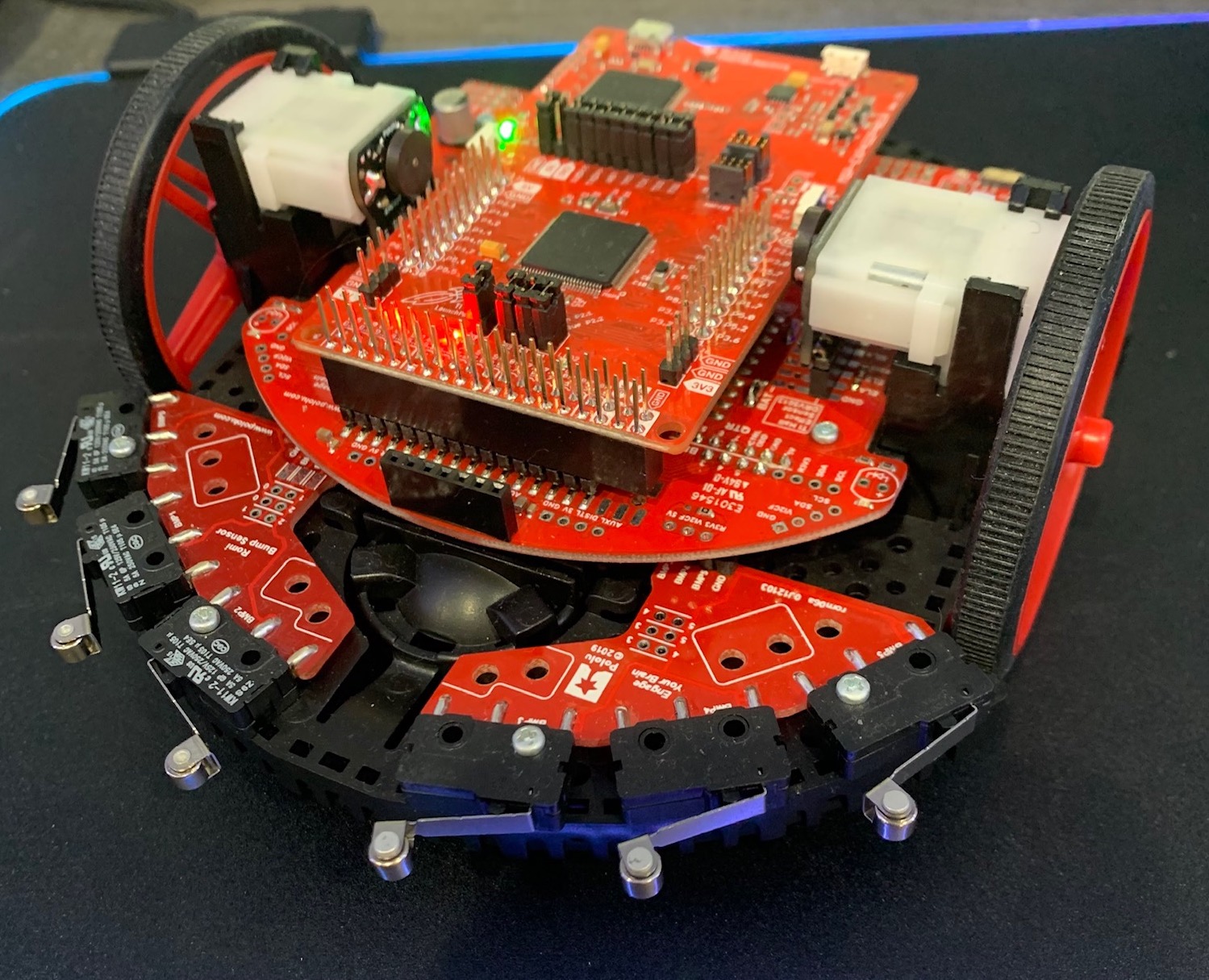The UF Summer Research Experience was a special opportunity for high school students to get involved in STEM-related research at UF. Largely organized and conceived by Dr. Christophe Bobda and his SmartSystems Lab, the two-week virtual research experience, presented via the Zoom platform, provided insight into two potential future fields of study for students: robotics & artificial intelligence. Students chose the track they were most interested in and were then led through a “crash course” covering a wide swath of topics for the respective subject. A total of 25 students completed their program—12 in robotics, 13 in artificial intelligence.
The short duration of the program (two weeks) necessitated a very fast pace for both tracks. Each lesson and lab was recorded and available for students to review at any time. Volunteers provided extra assistance when needed.
Robotics
Students learned some history of the development of robotics technology, as well as common ways in which robots are used today. Programming was presented as a platform with which to control robots. Students assembled a small wheeled robot that could be controlled by software loaded onto its MSP432, assisted by student volunteers (Kevin Cheng, Wade Fortney, Taras Jacus, Justin Nagovskiy, Quinlan Daily, and David Carvajal) from SmartSystems Lab. Students learned all the basics required to ultimately control the robot—GPIO, Line Sensors, DC Motors, and Finite State Machines. The program culminated with a challenge—programming a robot to follow a real-world path in a challenging environment.
Robotics Track Topics
- Introduction to C programming
- Introduction to Robotics (brief overview of the history of robotics)
- Robotics Theory concepts (wheeled/legged locomotion, sensors & perception)
- Binary & Hexadecimal Number Systems
- Basic Electrical energy concepts (Voltage, Current, Resistance)
- Putting together the TI-RSLK MAX robot kit
- Software design using the MSP432 found on the robot and Code Composer Studio
- Line Detection Sensor use
- Input & Output (GPIO)
- Finite State Machines
- Control of the DC Motors
- Final Robotics Challenge (program the robot to follow a defined path)
Artificial Intelligence
The AI track was taught by Dr. Joel Harley along with volunteers (Ishan Khurjekar, Daniel Alabi, Joseph Melville, and Zachary Wilkerson) from SmartDATA Lab. Each day was divided into two sessions: concepts (morning) and implementation (afternoon).
In the first week, students learned about specific problems for which AI systems can be built and preparations required. Students also familiarized themselves with basic programming using Python on Google’s Colab server. In week 2, students learned about popular AI algorithms and utilized them for designing simple AI systems. Next, the students started working on their final projects. Choosing a dataset of their own interest, they then defined a specific problem to solve. The students demonstrated their understanding of AI by using appropriate algorithms for their chosen task. Final projects were presented on the final day.
AI Track Topics
- What is AI?
- Solving problems with AI
- Types of data
- Data visualization
- Data processing/transformation
- Supervised machine learning
- Unsupervised machine learning
- Presentation skills
- Python/Google Colab
Outcomes & Successes
The success of the program is best measured in terms of skills and knowledge delivered, but also in terms of interest—both tracks sparked excitement and interest in program participants. Concepts and skills presented in the summer research experience provided a solid foundation, hopefully encouraging participants to continue in STEM fields. Students were excited to learn about about robotics and AI and generally showed interest in implementing concepts on their own. Students also gained valuable experience answering questions on the fly and were able to hone their presentation skills. In particular, a few students also planned to design AI systems for high school science fairs in the future.
Overall, students had a bird’s eye view of both the robotics and AI fields. The summer research experience will hopefully encourage the students to remain curious and to develop a future interest in scientific and engineering research.

